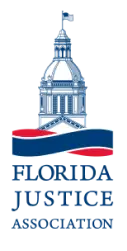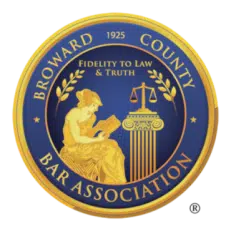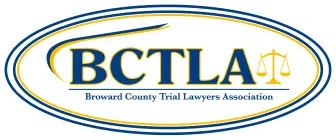 Florida law requires property owners & business operators to take reasonable care to protect customers and visitors. If you slip and fall due to the property owner’s negligence, you may be entitled to compensation for your injuries.
Florida law requires property owners & business operators to take reasonable care to protect customers and visitors. If you slip and fall due to the property owner’s negligence, you may be entitled to compensation for your injuries.
Generally, succeeding in slip and fall claims requires proving the owner had constructive or actual knowledge of the slipping hazard that caused your injury.
Florida law makes slip-and-fall cases notoriously difficult to win!! It’s absolutely imperative to consult an experienced Florida slip and fall attorney. The lawyer will evaluate your situation and help you gather convincing proof of negligence.
That said, actual vs. constructive knowledge: what’s the difference? How do they influence a slip-and-fall case in Florida?
What Is Actual Knowledge?
Actual knowledge means the premise or property owner created or fully knew about the slipping hazard but did nothing about it. For example, if a cleaner in a restaurant spilled the slipping agent on the floor the victim fell on, the negligence is generally obvious.
Note two things:
- Creating the slip and fall danger is actual knowledge. A premise owner has “actual knowledge” if its employees or agents know of or create a dangerous condition but fail to clean it up.
- Knowing the slip hazard exists is actual knowledge.
Typically, it’s difficult to prove actual knowledge unless the premise owner willingly admits they knew or were informed about the slipping risk. For this reason, most slip and fall cases rely on constructive knowledge as evidence.
What Is Constructive Knowledge?
Constructive knowledge means the property owner should have known the hazard’s existence. Constructive knowledge is easier to prove than actual knowledge because circumstantial evidence can be used.
You must establish the following to prove constructive knowledge:
- The slipping hazard existed for a long time such that if reasonable care was practiced, the premise owner should have identified the danger.
- The hazard existed in a high-traffic area such that the operator knew or reasonably should have known of the dangerous condition on the premises.
- Slip and fall cases occurred regularly on the property, so your accident was foreseeable.
What Is a Slipping Hazard According to Florida Laws?
In Florida, the official name of a slipping hazard is “transitory foreign substance.”
In one slip and fall case, Owens v. Publix Supermarkets (2001), the Supreme Court of Florida defined a transitory foreign substance as:
“...any liquid or solid substance, item or object located where it does not belong.”
In other words, it’s any substance found where it shouldn’t be. Examples may include:
- Water
- Banana (as in the real-life case mentioned above)
- Oil
- Grease
- Melted butter (like in Ramey v. Winn-Dixie Montgomery, Inc.)
But whether you want to prove actual or constructive knowledge, more than the mere presence of a transitory foreign substance on the floor may be required.
You may need to establish additional facts to support your case. And how do you achieve that?
How Actual and Constructive Knowledge Affect the 4 Crucial Elements of a Slip and Fall Case
When bringing a slip and fall claim against a property owner, you should understand one thing:
The case isn’t simply about proving that you slipped and fell.
You must convince the jury, by a preponderance of the evidence (meaning, more likely than not), that the following four elements exist in your case:
1. Duty of care
You must establish that the property owner or the business establishment owed you a reasonable duty of care. For instance, a supermarket owner has a legal duty to provide a safe atmosphere for shoppers.
2. Violation of duty of care
You must provide strong evidence that the party you’re suing breached the duty of care. Essentially, you must establish some form of negligence. Examples of breach of duty may include:
- Failure to clean dirt or spills within the premises that caused slipping and falling
- Having worn-out or damaged flooring
- Failure to remove litter from the hallways
Violation of duty is the most critical element in your case. It’s where constructive knowledge applies in your slip and fall claim.
You must show that the hazard existed for a reasonable period for the property owner to notice and remedy the condition.
For instance, getting compensation might be difficult if a person slips and falls on the water a minute after it spills. But if the same person slips and falls an hour after the water initially spilled, it might be possible to establish constructive knowledge (especially if the fall occurred in a high traffic area).
Alternatively, you can prove that slip and fall cases are persistent in the premise, such that your accident was predictable.
Convincing the judge and the jury requires solid facts. Remember, it will be a legal battle since the defendant will fight back the claim. An experienced Florida slip and fall attorney at Eltringham Law Group will fight on your behalf to help you get the compensation you’re entitled to.
3. Causation
You’ll need evidence that your injuries were caused by negligence (breach of duty of care) of the premise owner.
In other words, if a person sustains a head injury after falling on a wet floor in a business establishment, the individual must prove that the injury directly came from the slip and fall accident.
4. Damages
In this element of your case, you need to prove the impact of the injuries on your life:
- What financial costs have you incurred because of the slip and fall injury? They may include lost wages and medical bills.
- Have you experienced pain and suffering because of the injuries? A lawyer may help you establish the full extent of damages to ensure you get everything you’re entitled to in your claim.
Contact a Florida Slip and Fall Attorney At the Eltringham Law Group
When taking legal action against a company, you will likely battle against a powerful legal counsel. Hiring an experienced and reliable lawyer will give you a fighting chance to pursue the compensation you truly deserve.
The Eltringham Law Group is well-prepared for complicated personal injury cases. We know of defendants’ strategies to shift blame to plaintiffs in lawsuits. No matter how big the business you’re suing is, we will use every option at our disposal to seek a positive outcome for you.
If you want to sue a business with a slip and fall claim, we can help you pursue the compensation you’re entitled to in your case. Call us today for a free case evaluation.
Actual and Constructive Knowledge FAQs
What's the difference between constructive and actual knowledge?
Actual knowledge means the property owner is fully aware of the slip and fall hazard. On the other hand, constructive knowledge means the property owner should have known the dangerous condition exists and failed to remedy it.
What should I do after a slip and fall?
Take lots of pictures and collect witness information. Then, notify the store manager or property owner, file an incident report, and seek immediate medical attention.
Last updated Wednesday, May 22nd, 2024
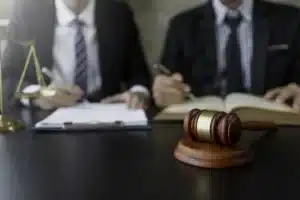 Florida law requires property owners & business operators to take reasonable care to protect customers and visitors. If you slip and fall due to the property owner’s negligence, you may be entitled to compensation for your injuries.
Florida law requires property owners & business operators to take reasonable care to protect customers and visitors. If you slip and fall due to the property owner’s negligence, you may be entitled to compensation for your injuries.
